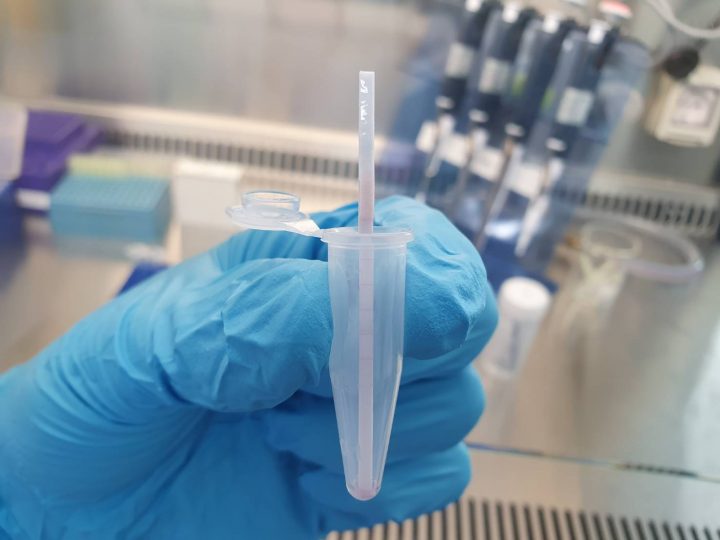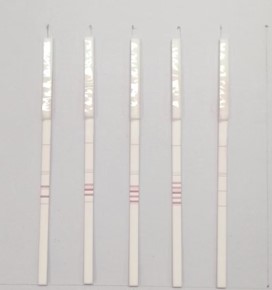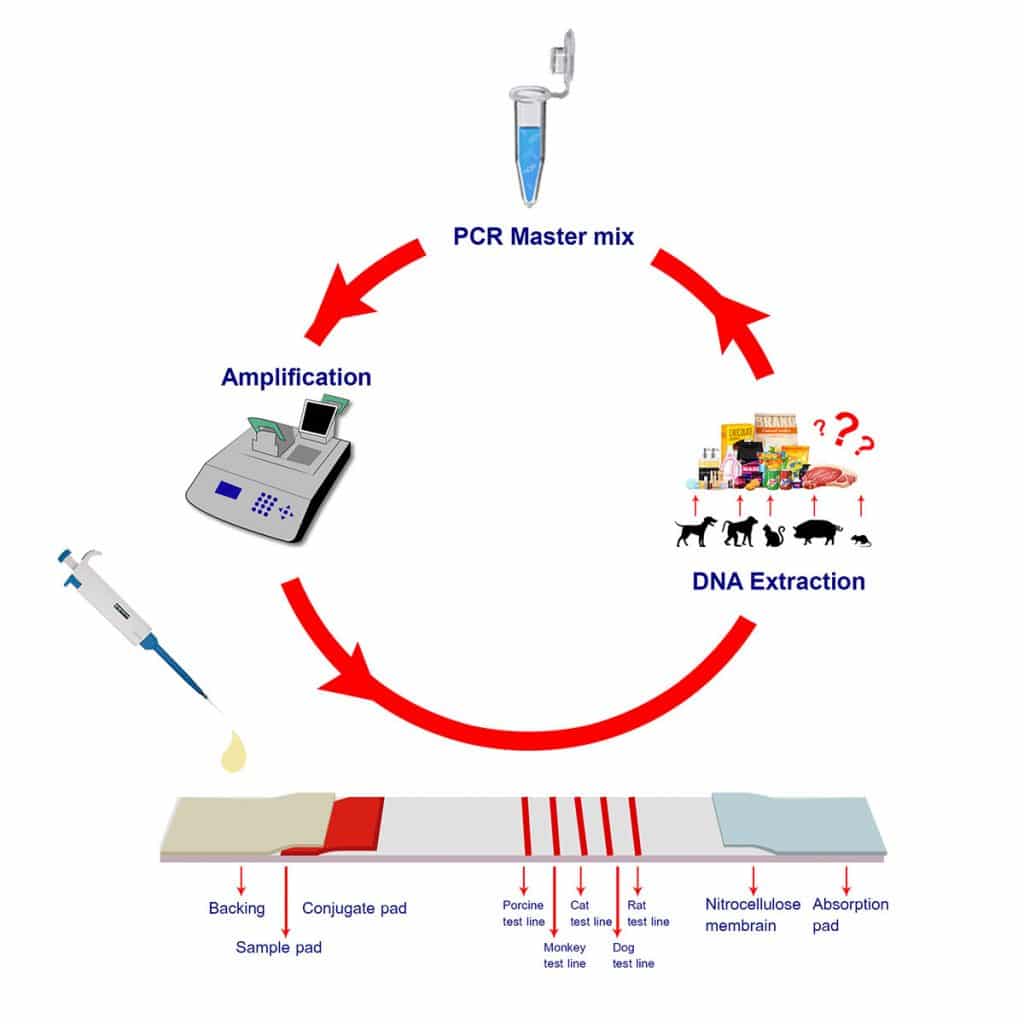Food tainted with certain types of meat is forbidden by Islamic dietary law and is a major concern for Muslims around the world. Surveys show that Thailand is one of the areas where pork is found to be mixed into beef, while rat meat, dog meat, and kangaroo meat are found in Indonesia, Vietnam, Australia, and Malaysia respectively.
Such contamination is not merely a violation of Islamic religious law, but also poses health risks to consumers, regardless of their religion.
The above concerns have motivated the Chula Halal Science Center to invent a Strip Test to detect foreign meat contamination which consumers and food manufacturers can perform by themselves.

Strip Test to detect foreign meat contamination
“This innovation certainly addresses the concerns that Muslim consumers and the general public have. The Strip Test detects targeted DNAs, so it can yield a 100%-accurate result within 3 hours, which is much faster than sending the samples to the lab that normally takes 1-5 business days. Moreover, it is also easy to use, cheap and convenient,” said Anat Denyingyote, Assistant Director and Head of Science and Technology Services Group, Chula Halal Science Center.

Anat Denyingyote,
Assistant Director and Head of Science and Technology Services Group, Chula Halal Science Center
Apart from cutting processing time and cost, the Strip Test also detects traces of the 5 prohibited meat in food (pork, dog, cat, rodent and monkey) in one single test. The test kit can be used with raw and cooked food, as well as other ingredients.

Strip Test detects traces of the 5 prohibited meat in food in one single test
“We want Muslim consumers, the public, and food business operators to be able to perform the test on their own at a reduced cost for safety and their peace of mind,” Anat said while detailing the rationale behind the development of the Strip Test based on the HRMA (High-Resolution Melting Analysis) technology. HRMA is used in halal forensic laboratory to detect contamination of the 9 banned meat (pork, dog, cat, rodent, monkey, donkey, snake, crocodile, and frog). The Center also offers other services to the public such as gelatin contamination test, fatty acid profile test, and ethyl alcohol test, etc.
Currently, Strip Test users are limited to business operators, halal inspection agencies, and a few consumers with a science background. In the future, with the support of funding from the Agricultural Research Development Agency (Public Organization) or ARDA in collaboration with Tallenome DNA Professional Co., Ltd., the Halal Science Center, led by Assoc. Prof. Dr. Winai Lahlan, and Prof. Dr. Suwimol Kiratipibul hopes to make this innovation widely accessible. The plan is to make the Strip Test kit available at 300-500 baht, which is 10 times cheaper than a forensic lab test.
“Next, we will further develop Strip Test into a comprehensive test kit capable of yielding faster results and can be used for on-site detection. It’s also easy for consumers to use. They can just follow the manual and perform the test,” Anat said.




